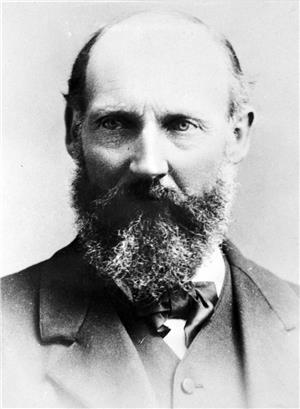On July 10, 1871, Seattle voters elect John T. Jordan, stone mason, as the city's mayor.
Jordan, a stone mason and plasterer, had lived in Seattle at least since 1860, when the census recorded his presence as one of 90 unmarried white men in the town then (out of a total white population of 182). Among his early construction projects was the first building on the campus of the Territorial University (later to become the University of Washington), located on the present-day site of the Fairmont Olympic Hotel at 4th Avenue and University Street. The two-story building, with four hand-fluted wooden columns and a distinctive cupola, housed most of the university's functions until 1895, when a new campus was developed on Lake Washington. Jordan worked on the building's foundation, brickwork, and plastering.
Jordan served as town marshal in 1869. He was elected to the Common Council (predecessor of the City Council) during Seattle's first municipal election, in 1870. Under the city charter at that time, elections were held on the second Monday in July, and mayors and councilmen both served one-year terms. When Jordan completed his term as mayor in 1872, he was elected to another term on the council.
Jordan's successor as mayor, Corliss P. Stone, abruptly left office before the end of his term. Stone reportedly embezzled $15,000 embezzled from his business partners and left Seattle for San Francisco in the company of a woman who was married to someone else. Jordan was appointed acting mayor until a special election could be held to fill out Stone's term.
In later life, Jordan became active in the Masonic lodge, serving as an officer in Seattle Chapter No. 1, Royal Arch Masons for many years. In 1884, he was elected first grand chancellor of the Washington territorial grand lodge of the Knights of Pythias, a fraternal organization related to the Masons.

